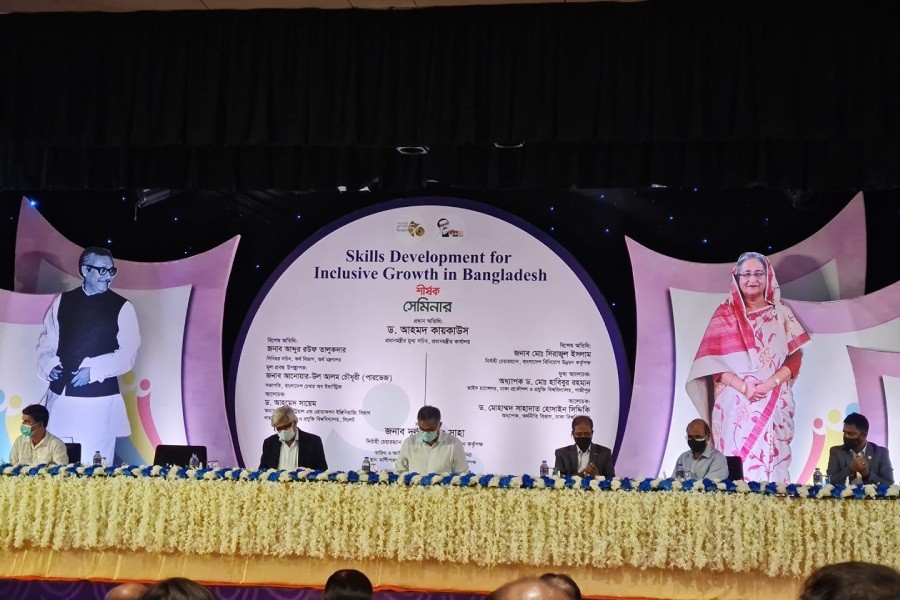Bangladesh should establish a separate ministry for human resources development in a bid to give an impetus to the skill development activities so that the country can turn its population into assets, a keynote paper suggested.
The paper, presented at a seminar, also said such a ministry will emphasise vocation, technical, and professional courses so that it can abridge the existing gap between education and the industry requirements.
President of Bangladesh Chamber of Industries (BCI) Anwar-ul Alam Chowdhury (Parvez) presented the keynote paper at a seminar on ‘Skills Development for Inclusive Growth in Bangladesh’ organised by the National Skills Development Authority (NSDA) on Monday evening at its office in the city’s Agargaon area.
Principal Secretary to the Prime Minister Dr Ahmad Kaikaus attended the programme as the chief guest, and Secretary to the Technical and Madrasha Education Division Aminul Islam Khan as the special guest, while the NSDA Executive Chairman Dulal Krishna Saha presided over the event.
The Vice Chancellor of Dhaka University of Engineering and Technology or DUET Professor Md Habibur Rahman attended as the key discussant.
A Professor of Industrial and Production Engineering at Shahjalal University of Science and Technology (SUST) Dr Ahmed Sayem, a professor of Economics at the University of Dhaka Prof Dr Muhammad Shahadat Hossain Siddiquee, and an NSDA member Md Nurul Amin spoke on the occasion among others.
Presenting the keynote paper the BCI President also said neighbouring India got a huge benefit from a dedicated human resources ministry that was established in 1990.
“Millions of technical educational institutions were established in India following the industry assessment by the ministry, which yielded a good result for them,” said Mr Anwar-ul Alam Chowdhury.
He said the country faces a paradoxical problem as there is a huge number of educated people whereas the employers cannot find the right manpower from them due to the skill gap.
“36 per cent of employers (are) facing the shortage of professional and skilled manpower,” he said.
Considering the skill gap in the country, the NSDA was established in 2019 under the Prime Minister’s Office (PMO).
Highlighting the social stigma about technical and vocation education, he said along with the government agencies media can play a vital role in promoting and popularising them.
In his speech, Dr Ahmad Kaikaus said learning new technology along with acquiring new skills is a must for desired inclusive economic growth for the country.
“If proper knowledge is gathered, there is no worry with the fourth industrial revolution (4IR) that creates anxiety among many,” he said.
Highlighting the prospect of using 4IR components, he said Germany logged 37 per cent growth of robotics adoption in 2018 when the nation also recorded the lowest unemployment rate.
“In reality, machines don’t replace humans, rather create opportunities; the important point is to learn the skills fast,” said Mr Kaikaus.
Bangladesh has a great advantage with the advent of the 4IR as there is a huge demographic dividend, he said and underscored the need for time-befitting development of human resources.
NSDA Executive Chairman Dulal Krishna Saha said the NSDA came into force aiming to implement the government’s various development goals including Perspective Plan, Vision-2041 and the SDGs.
He sought support and cooperation from both the public and private support with its agenda to help the country utilise its human resources through skill development.


